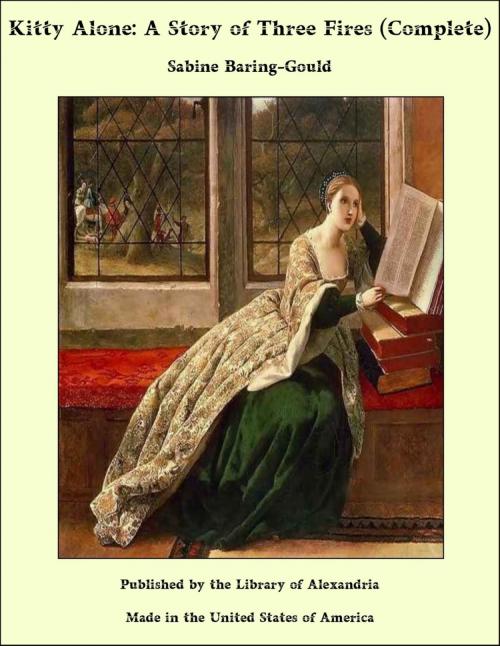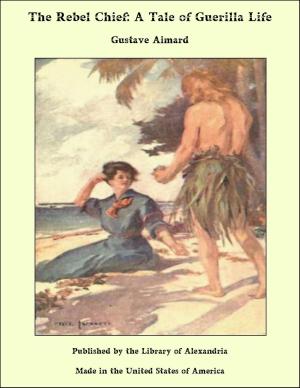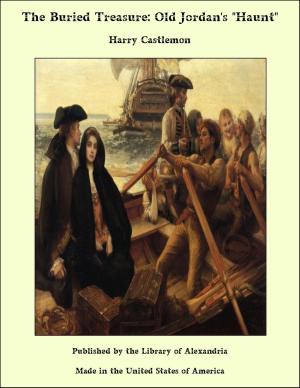Kitty Alone: A Story of Three Fires (Complete)
Nonfiction, Religion & Spirituality, New Age, History, Fiction & Literature| Author: | Sabine Baring-Gould | ISBN: | 9781465616548 |
| Publisher: | Library of Alexandria | Publication: | March 8, 2015 |
| Imprint: | Language: | English |
| Author: | Sabine Baring-Gould |
| ISBN: | 9781465616548 |
| Publisher: | Library of Alexandria |
| Publication: | March 8, 2015 |
| Imprint: | |
| Language: | English |
With a voice like that of a crow, and singing with full lungs also like a crow, came Jason Quarm riding in his donkey-cart to Coombe Cellars. Jason Quarm was a short, stoutly-built man, with a restless grey eye, with shaggy, long, sandy hair that burst out from beneath a battered beaver hat. He was somewhat lame, wherefore he maintained a donkey, and drove about the country seated cross-legged in the bottom of his cart, only removed from the bottom boards by a wisp of straw, which became dissipated from under him with the joltings of the conveyance. Then Jason would struggle to his knees, take the reins in his teeth, scramble backwards in his cart, rake the straw together again into a heap, reseat himself, and drive on till the exigencies of the case necessitated his going through the same operations once more. Coombe Cellars, which Jason Quarm approached, was a cluster of roofs perched on low walls, occupying a promontory in the estuary of the Teign, in the south of Devon. A road, or rather a series of ruts, led direct to Coombe Cellars, cut deep in the warm red soil; but they led no farther. Coombe Cellars was a farmhouse, a depôt of merchandise, an eating-house, a ferry-house, a discharging wharf for barges laden with coal, a lading-place for straw, and hay, and corn that had to be carried away on barges to the stables of Teignmouth and Dawlish. Facing the water was a little terrace or platform, gravelled, on which stood green benches and a green table. The sun of summer had blistered the green paint on the table, and persons having leisure had amused themselves with picking the skin off these blisters and exposing the white paint underneath, and then, with pen or pencil, exercising their ingenuity in converting these bald patches into human faces, or in scribbling over them their own names and those of the ladies of their heart. Below the platform at low water the ooze was almost solidified with the vast accumulation of cockle and winkle shells thrown over the edge, together with bits of broken plates, fragments of glass, tobacco-pipes, old handleless knives, and sundry other refuse of a tavern.
With a voice like that of a crow, and singing with full lungs also like a crow, came Jason Quarm riding in his donkey-cart to Coombe Cellars. Jason Quarm was a short, stoutly-built man, with a restless grey eye, with shaggy, long, sandy hair that burst out from beneath a battered beaver hat. He was somewhat lame, wherefore he maintained a donkey, and drove about the country seated cross-legged in the bottom of his cart, only removed from the bottom boards by a wisp of straw, which became dissipated from under him with the joltings of the conveyance. Then Jason would struggle to his knees, take the reins in his teeth, scramble backwards in his cart, rake the straw together again into a heap, reseat himself, and drive on till the exigencies of the case necessitated his going through the same operations once more. Coombe Cellars, which Jason Quarm approached, was a cluster of roofs perched on low walls, occupying a promontory in the estuary of the Teign, in the south of Devon. A road, or rather a series of ruts, led direct to Coombe Cellars, cut deep in the warm red soil; but they led no farther. Coombe Cellars was a farmhouse, a depôt of merchandise, an eating-house, a ferry-house, a discharging wharf for barges laden with coal, a lading-place for straw, and hay, and corn that had to be carried away on barges to the stables of Teignmouth and Dawlish. Facing the water was a little terrace or platform, gravelled, on which stood green benches and a green table. The sun of summer had blistered the green paint on the table, and persons having leisure had amused themselves with picking the skin off these blisters and exposing the white paint underneath, and then, with pen or pencil, exercising their ingenuity in converting these bald patches into human faces, or in scribbling over them their own names and those of the ladies of their heart. Below the platform at low water the ooze was almost solidified with the vast accumulation of cockle and winkle shells thrown over the edge, together with bits of broken plates, fragments of glass, tobacco-pipes, old handleless knives, and sundry other refuse of a tavern.















